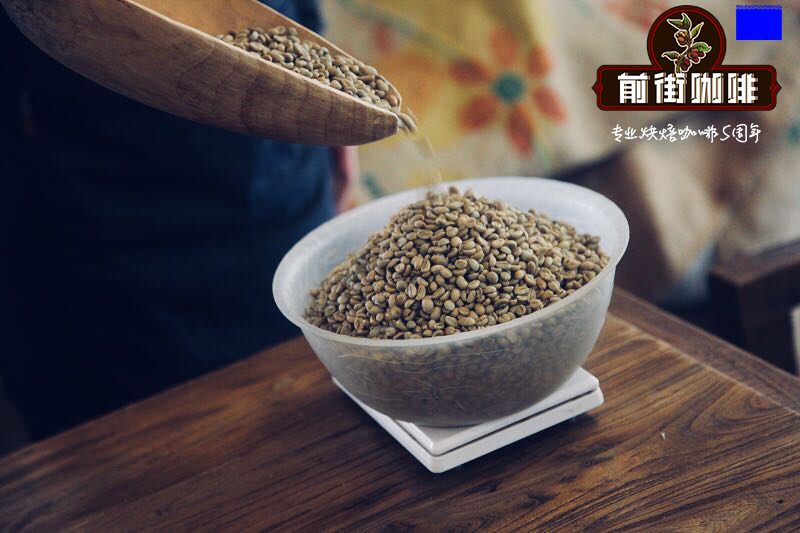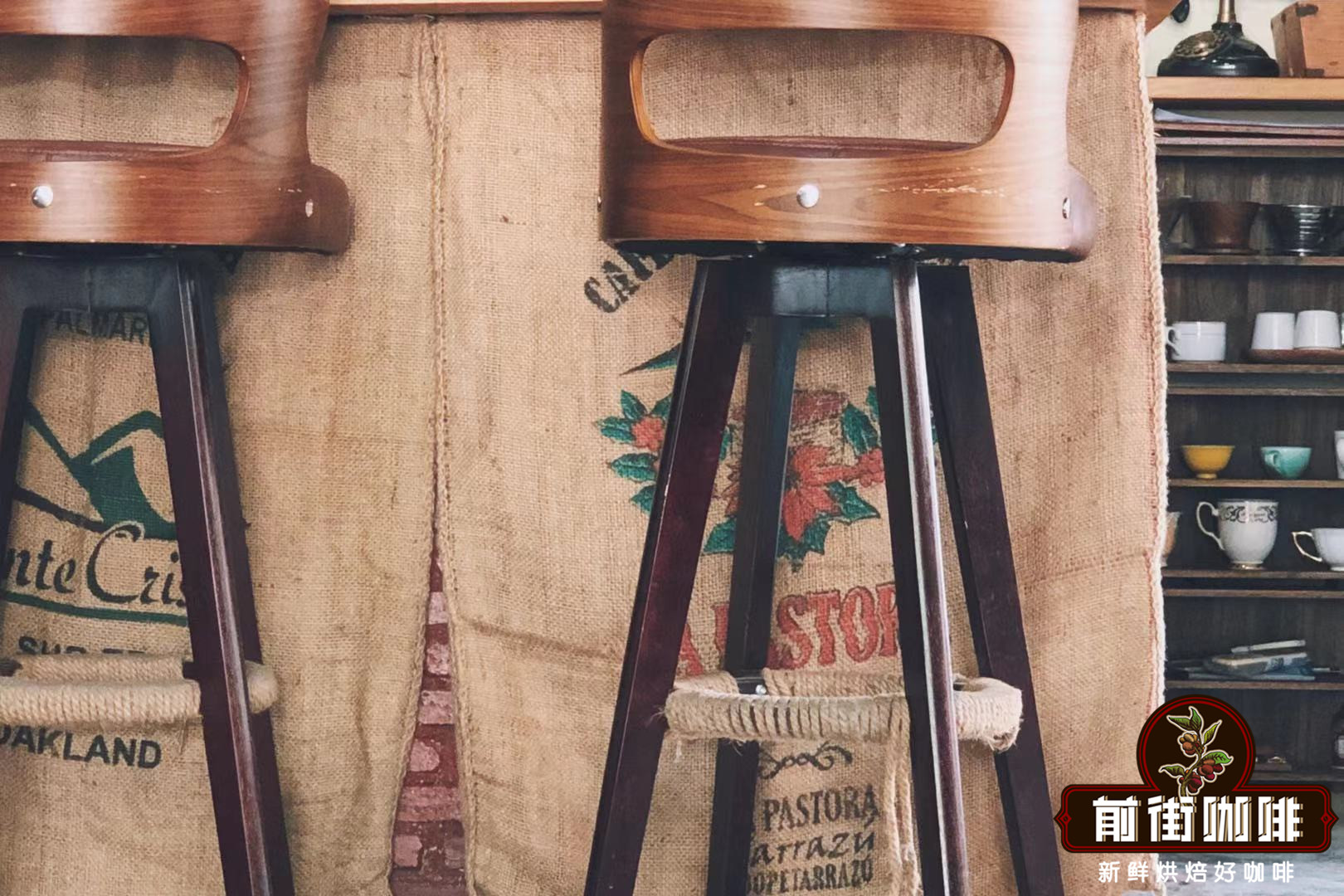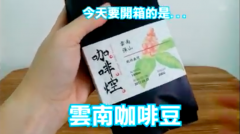Fine beans from Yunnan Coffee producing areas-- introduction to the taste and flavor of Pu'er coffee with small grains

Professional coffee knowledge exchange more coffee bean information please follow the coffee workshop (Wechat official account cafe_style)
China Yunnan Coffee _ Yunnan small Fine Coffee beans _ Yunnan Coffee Bean Price
Yunnan coffee is the main and largest coffee producing area in China. At present, Yunnan coffee producing areas are mainly distributed in Simao, Banna, Wenshan, Baoshan, Dehong and other areas in the south and southwest of Yunnan.
The coffee company imports Yunnan coffee mainly in Pu'er. Pu'er is a small town located in Simao and the hometown of Pu'er tea. It is famous for Pu'er tea because of its lush mountains and white clouds. It is somewhat surprising that coffee beans are also grown in this tea village. Most of the coffee farms operated in this area are small farms in 300-700 mu, mainly producing Arabica coffee beans. The Tropic of Cancer just across the territory of Simao, in line with the basic conditions of coffee cultivation, where the climate is pleasant low-latitude plateau south subtropical monsoon climate zone, with low-latitude, high temperature, rainy, quiet wind characteristics, no cold winter, summer no heat, four seasons like spring, the average temperature is 19 ℃, planting altitude between 90-1300 meters, the average annual rainfall is 1500 mm, congenital conditions for the production of high-quality coffee beans.
Before large-scale cultivation, it is not easy for people in Yunnan to drink a cup of coffee. To stir-fry coffee, you must first mash the parchment layer with a stone pestle, then stir-fry the coffee beans by hand in an iron pan, and then grind the piles into powder. It is very troublesome to drink a cup of coffee, and it is difficult to grasp the taste of coffee, so local people are not in the habit of drinking coffee. so far, it is quite easy to have a cup of Pu'er tea in Pu'er City, which is available everywhere, but it is very difficult to find a place for a cup of coffee. You can't find a coffee shop on Pu'er Street, or even a coffee roaster in Simao City or Kunming.
I have visited several local coffee farms in Yunnan to observe the patterns of planting and handling coffee beans in these farms. Their main planting and processing techniques and experience come from some international coffee companies. These international coffee companies buy a large number of raw coffee beans in Yunnan producing areas, set up coffee agricultural experimental farms, teach local farmers to grow and deal with coffee beans, and mainly introduce Colombian-style treatment methods, from washing beans to fermentation. Drying beans is similar to the Colombian model. Most of these international coffee companies are the major producers of coffee powder and instant coffee in the world, and they have reasonable requirements for the quality of coffee beans, mainly for quantity; therefore, the requirements for bean shape and defects in coffee quality are not strict. Therefore, local coffee farmers grow and produce processed coffee in this direction. In terms of planting and treatment mode, there are often some problems.
We tried to find some farms in Yunnan producing areas that could produce high-quality coffee, and communicated with some coffee farm owners technically, and selected one of some farms to cooperate with our processing technology. We made some discussions and requirements to improve the quality of coffee beans. In this process, we also thank the farm owners for their cooperation, and they also take advantage of this to improve the quality. Everyone worked hard to get good results and get the quality of Yunnan boutique coffee beans this time.
Yunnan coffee generally uses washing mode to treat coffee beans. In the early days, Colombian-style treatment mode was introduced by some large factories. Washing beans and drying beans were adopted Columbia mode. Coffee fruits were first mechanically removed from the peel and flesh through the endodermis. The fermentation tank fermented for 24 hours, and then washed the coffee beans with water to remove the pulp. At the same time, the bad beans were separated by the buoyancy of water. So far, the processing of coffee is close to the level of foreign coffee countries.
However, in the latter stage of treatment, local farm owners use some rice grain processors to improve the treatment of coffee beans, because there is a great difference between rice and coffee beans, which often results in a high damage rate of some coffee beans in the process of treatment. When we entered the producing area, we had some discussions with local coffee farmers, but as most of the farms were small-scale operations and insufficient funds, we found a more economical and effective way to cooperate with them, but in order to meet the quality requirements, a lot of manual treatment was used to achieve the goal.
Under the whole process of close supervision, the imported Yunnan coffee beans produced by the company still do not meet the most satisfactory requirements of our company, but for the local farms, they have rarely obtained the quality. even the farms themselves are very satisfied, this is a very good experience. If they can upgrade and replace the processing machinery and equipment, they will certainly be able to achieve a better and stable quality. they do not have to spend a lot of manpower and procedures to reach this level because of the quality we require this time.
Yunnan coffee is located in the famous tea area of Zhipu'er in China because of its geographical environment, the coffee garden is not far from the tea garden, the coffee has a little tea flavor, but it still retains the characteristics of Asian beans, chocolate flavor is obvious, the taste is rich and full, smooth, the acidity is quite soft and moderate, and the sweetness is high. Although it is washed beans, it also has some natural wild nature of unwashed beans. On the whole, it is a satisfactory and pleasant coffee bean.
How to brew Yunnan small grains of coffee
Important Notice :
前街咖啡 FrontStreet Coffee has moved to new addredd:
FrontStreet Coffee Address: 315,Donghua East Road,GuangZhou
Tel:020 38364473
- Prev

Boutique coffee bean individual coffee bean variety Daquan famous Arabica coffee bean producing area flavor characteristics
Coffee beginners must see: coffee types and characteristics how is coffee classified? North Sumatran coffee, which originated in Ethiopia, was brought to the world by the colonists during the great voyage and gradually became the most popular drink in the world. Let's take a look at the coffee beans with Skyscanner.
- Next

How about Yunnan coffee? Yunnan coffee beans Yunnan open the box and don't look less at Chinese coffee.
Professional coffee knowledge exchange more coffee bean information please follow the coffee workshop (Wechat official account cafe_style) Yunnan Coffee, China _ Yunnan fine coffee beans _ Yunnan coffee bean price Yunnan coffee? Can good coffee be grown with water like this in China? Could it be fake coffee beans? Han Huaizong, father of Taiwan's boutique coffee: in 2016, I had the privilege of tasting Yunnan raw beans.
Related
- Detailed explanation of Jadeite planting Land in Panamanian Jadeite Manor introduction to the grading system of Jadeite competitive bidding, Red bid, Green bid and Rose Summer
- Story of Coffee planting in Brenka region of Costa Rica Stonehenge Manor anaerobic heavy honey treatment of flavor mouth
- What's on the barrel of Blue Mountain Coffee beans?
- Can American coffee also pull flowers? How to use hot American style to pull out a good-looking pattern?
- Can you make a cold extract with coffee beans? What is the right proportion for cold-extracted coffee formula?
- Indonesian PWN Gold Mandrine Coffee Origin Features Flavor How to Chong? Mandolin coffee is American.
- A brief introduction to the flavor characteristics of Brazilian yellow bourbon coffee beans
- What is the effect of different water quality on the flavor of cold-extracted coffee? What kind of water is best for brewing coffee?
- Why do you think of Rose Summer whenever you mention Panamanian coffee?
- Introduction to the characteristics of authentic blue mountain coffee bean producing areas? What is the CIB Coffee Authority in Jamaica?

